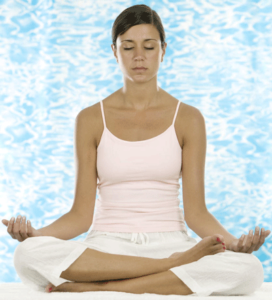How Physical Activity Improves Your Life
 Simply expending energy through any physical activity, including leisure time activities, will make you feel younger, look better, and live longer. It will even make you lose some fat while gaining more muscle, causing you to look more physically toned and younger than other people your age. An even more pressing reason to become active, though, is to reduce your risk of not feeling good during your lifetime. Inactivity, not aging, is the real reason many of us experience declines in energy and health as time passes.
Simply expending energy through any physical activity, including leisure time activities, will make you feel younger, look better, and live longer. It will even make you lose some fat while gaining more muscle, causing you to look more physically toned and younger than other people your age. An even more pressing reason to become active, though, is to reduce your risk of not feeling good during your lifetime. Inactivity, not aging, is the real reason many of us experience declines in energy and health as time passes.
Studies on men and women between the ages of thirty-five and sixty have shown that simply being more physically active during leisure time keeps heart disease and other life-shortening health problems at bay. Moreover, people who are active in their forties through their sixties (the new “middle age”) end up being more active and independent after they reach retirement age. Being regularly active even reduces your chances of getting colds and other viral illnesses by boosting the ability of your immune system to fight off disease. Thus, both of us believe that exercise is an eternal youth elixir when it comes to optimizing quality of life by keeping your body healthier and disease-free.
Becoming physically fit is more than worth it for numerous other reasons, many of which are listed in Table 2.1. For starters, it can greatly enhance your energy levels, reduce your risk of certain cancers (e.g., colon, prostate, and breast), help lower your blood pressure, prevent or reverse heart disease, reduce depression and anxiety, prevent thinning bones (osteoporosis), reverse prediabetes and new-onset type 2 diabetes, and dramatically lower your risk of developing diabetes, even if you have a strong family history of it. If you already have diabetes, being active can help you control your blood sugar and prevent diabetes-related health problems.
From a metabolic standpoint, it’s always better to be fit, no matter what your body weight is. Exercise enhances your body’s sensitivity to insulin, which usually results in better blood sugar control, as well as a lower risk of both heart disease and high blood pressure. Regular exercise can also alleviate severe arthritic symptoms that can make daily living painful. It even helps you sleep better, which is especially important since sleeping too little (e.g., only five hours a night) can increase your risk of gaining weight and getting diabetes.
| Positive Health Benefits of Physical Activity | |
| Brain/Emotions | Enhanced feeling of well-being, improved memory, prevention of dementia, decreased brain atrophy, reduced depression, and better sleep |
| Metabolism/ Hormones | Enhanced metabolic rate and energy levels, greater libido (sex drive), improved immune system function, more effective blood glucose use, and diabetes prevention |
| Heart | Prevention and possible reversal of heart disease, lower blood pressure, and stronger heart muscle |
| Muscles | Higher energy levels, better tone, more muscle mass (and prevention of loss over time), increased strength, endurance, flexibility, and balance, and heightened glucose storage |
| Bones | Greater bone mineral density and prevention of thinning, reduced symptoms of arthritis, and less likelihood of bone fractures and falls |
| Cancer | Reduced risk of colon, prostate, and breast cancer (and possibly others) |
| Longevity | Increased length of life and better health |
Tips For Better Health
Forget the drugstore remedies and special herbal supplements. Regular exercise is the real eternal youth elixir for optimizing quality of life, preventing disease, and enhancing your long-term health and overall longevity.
Exercise has payoffs for the mind, too, as it can improve feelings of overall well-being, along with reducing stress and depression. Many people who feel lethargic or drained all the time are generally just out of shape. Exercising makes you feel tired while you’re doing it, but its longer-lasting effect is the reverse: it enhances your overall energy levels. Likewise, movement lowers your mental stress. Just getting up from your desk and work when you’re stressed out and going for a short walk can clear your mind, improve your mood, and enhance your productivity when you return to the task at hand. Studies have also shown that exercise is an effective remedy for mild to moderate depression and possibly major depressive disorder as long as the activity is continued over time.
What’s more, it appears to reduce the risk of Alzheimer’s and other forms of dementia that have recently begun appearing at earlier ages in many adults, even well before retirement age. For older individuals, exercise clearly improves brain function. For example, in a study of 1,740 adults over sixty-five years of age who were followed for more than six years, individuals who exercised three times a week were a third less likely to develop dementia. However, even in younger individuals, regular exercise is associated with less brain atrophy, or shrinkage, and even as little as six months of regular aerobic training can reduce your rate of brain loss.
Any activity increases blood fl ow and oxygen delivery to your brain and results in a reduced cell loss in the part of your brain called the hippocampus, which is the region associated with memory and spatial navigation. Not only can activity delay or prevent dementia, it may be able to restore some of what you’ve lost mentally. Thus you need to exercise to keep from losing your brain, but also if you’ve already lost some of it.
It’s never too late to regain a great deal of the physical fitness you have lost through inactivity. What’s more, regular exercise can improve your coordination, balance, and posture and keep them optimal over time. If you have reached forty years or more and haven’t started exercising yet, now is definitely the time to begin.
A recent study on exercise demonstrated that even for people who are already middle-aged, exercising more can add years to their lives, and you can be assured that those extra years are much more likely to be lived well. Frankly, remaining inactive is the most devastating thing you can do to your long-term health and longevity.
Alternately, becoming more active at any age is a surefire way to stay younger—or at least to look and feel that way.
Tips for better health
It’s never too late to start being more physically active for the purpose of looking and feeling younger. If you choose to remain inactive, realize that it’s probably the most devastating thing you’ll ever do to your long-term health and longevity.
Before you stay on that couch or in that chair and vegetate some more, think about what you really want for yourself. Do you really want to just live longer, or do you want to feel better while you’re alive? Living longer, particularly if your later years are plagued by debilitating illnesses, immobility, or a loss of independence, is not necessarily a gift. Living well and feeling young enough to do whatever you want to the whole time you are alive, however, is priceless.
Do You Need to See Your Doctor First?
Depending upon your age, medical history, and current level of activity, you should consider having a medical examination before starting an exercise program. Get your blood pressure and heart rate checked, along with possibly having an exercise stress test. A stress test usually involves walking on a treadmill. The American Heart Association recommends such testing for all sedentary men over forty-five and women over fifty. In actuality, such extensive testing is likely only important if you want to start a vigorous training program that gets your heart rate up really high. If your intent is just to walk or participate in mild resistance training, such testing may not be necessary.
Certain individuals may benefit from a more extensive pre-exercise exam, particularly someone with any of the following:
A history of heart problems, such as irregular heartbeats, palpitations, chest pain, or a heart attack; high blood pressure (controlled or uncontrolled); elevated cholesterol levels; obesity; impaired kidney function; diabetes; joint, hip, or knee problems; visual problems; a history of cigarette smoking; a close relative who died from a heart attack before age fifty; and prescription drug use, such as beta-blockers, that may affect your tolerance for exercise. Check with your doctor at your next visit to discuss any precautions that may be important for your health when exercising.
Take a bath after workout if you are going out for work.
Although it’s not necessary to have either a cold or hot bath or shower after a work-out but if you need to go back to work or out for the day or evening then it’s really required.
Many footballers and athletes having cold or ice baths straight after a game. The reason behind this is to prevent or reduce any inflammation from injuries that may have occurred during the game.
But it’s quite not recommended for the average person and might be painful too.
A warm bath or shower (in summer days like > 34 C you can avoid warm water) is a better option for you, immediately after workout as it will help you feel more relaxed. It’s a great idea to stretch the hamstrings in the bath as the muscles are more relaxed and pliable with warm water. Better to have shower with your spouse helping/massaging each other while taking shower.


























